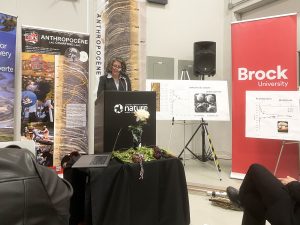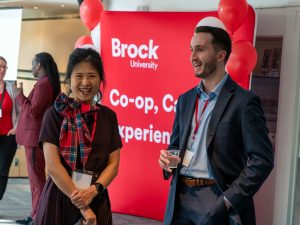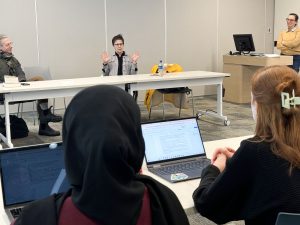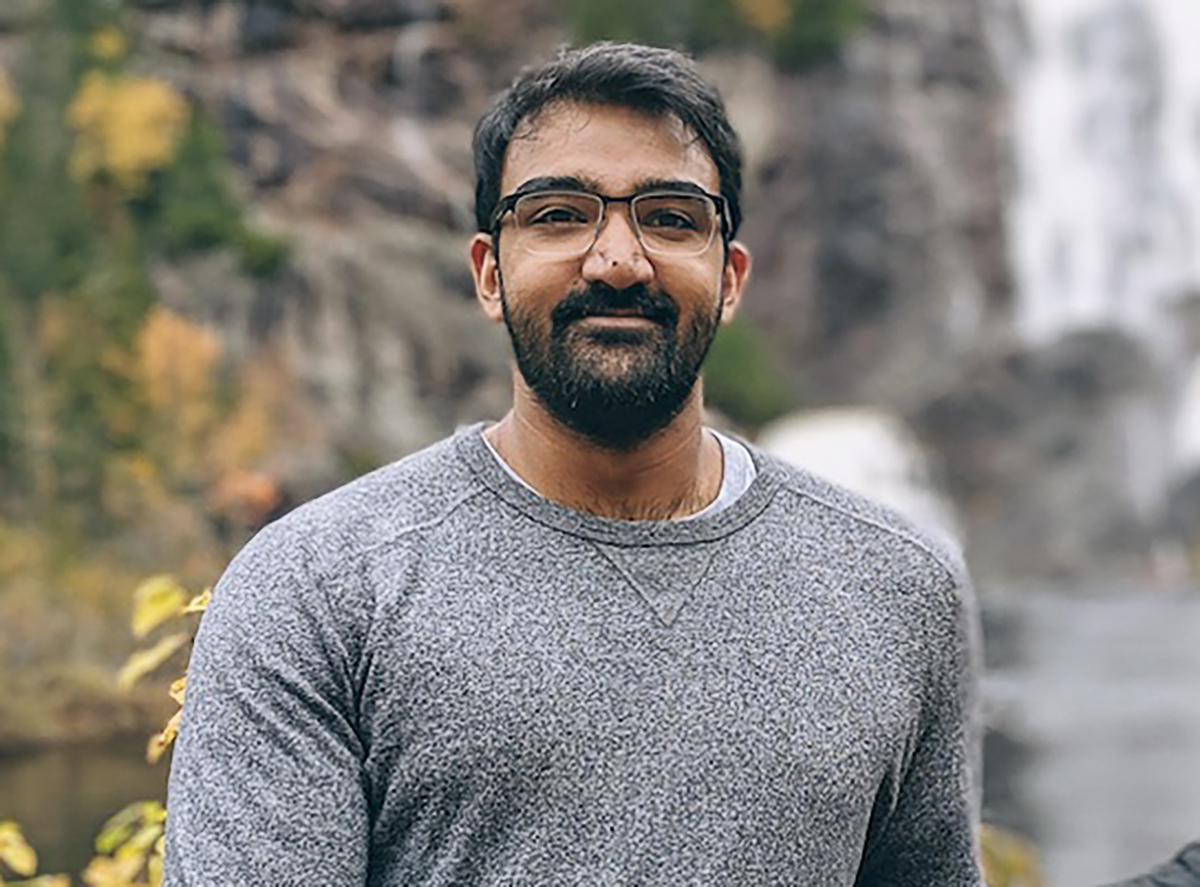 Robert Kumar, a PhD student in Applied Health Sciences, created a mentorship program for fellow graduate students in his Faculty.
Robert Kumar, a PhD student in Applied Health Sciences, created a mentorship program for fellow graduate students in his Faculty.Robert Kumar knows the impact effective mentorship can have on a student’s academic journey.
The Brock Applied Health Sciences PhD student has benefited from exemplary mentorship from both faculty supervisors and peers — and he has been working to help other students gain access to that same support.
In an effort to provide all Faculty of Applied Health Sciences (FAHS) research-based graduate students with similar opportunities, Kumar launched the FAHS Graduate Mentorship Program during the 2020 Fall Term.
“From my undergraduate days at Brock to present, I have been mentored by amazing faculty members,” Kumar says. “Mentorship can honestly make or break this experience. Kinesiology Professor Dr. David Gabriel and Associate Professor Dr. Mike Holmes have been tremendous to me. However, I also had support from individuals like Dr. Matt Mallette (BKin ’13, MSc ’15, PhD ’19) when he was a PhD student at Brock. He was able to provide me raw and honest advice relating to his own experiences that I found extremely helpful.”
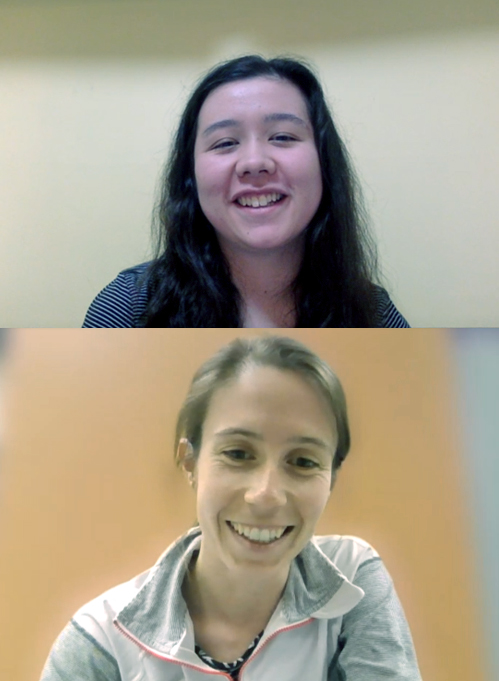
Mentee Kim Uyeno (top) and mentor Stacey Woods meet virtually as part of the Faculty of Applied Health Sciences Graduate Mentorship Program.
To get the mentorship program up and running, Kumar enlisted the help of fourth-year Kinesiology student Aaron Wexler, who had great success with the undergraduate FAHS Mentorship Program. The pair discussed the foundation for a similar graduate student program and Wexler encouraged Kumar to move forward with the idea.
Kumar recruited an executive team and designated each member as a FAHS department lead before then developing a questionnaire to help match student mentees and mentors.
The inaugural class this past fall drew great interest, with more than 40 students put into mentorship pairs. The program aims to pair each mentee with a mentor who is within the same discipline but further along in their academic studies.
Kim Uyeno, a Master of Science in Kinesiology student, says participating in the program has provided her with valuable opportunities she otherwise would not have had.
“I am not part of a lab, so I don’t have labmates to converse with and ask questions to,” Uyeno says. “I saw the mentorship program as a great opportunity to meet someone in my program that has already been through the process.”
Uyeno was matched with Stacey Woods, an Applied Health Sciences PhD student whose focus relates to Kinesiology. While Woods joined the program to help develop her mentorship skills, she says her pairing with Uyeno has been mutually beneficial.
“Kim comes from a different area of study within Kinesiology than I do, so I have also been able to learn a lot from her. I have really enjoyed our pairing.”
Woods also joined the program because she felt the COVID-19 pandemic may create an isolating experience for many new graduate students, and she wanted to help where she could.
As Kumar reflects on the mentorship program’s first year, he is pleased with the success and the pairings that were made.
“There were lots of mentorship pairings happening organically in our Faculty, but I am so glad we took the steps to formalize this program,” he says.
Kumar thanked Peter Tiidus, Dean of Applied Health Sciences, and Deborah O’Leary, Associate Dean, Graduate Studies, for their endorsement, calling their help essential to the success of the program.
Moving forward, Kumar is working towards expanding mentorship opportunities to include students from the Faculty’s course-based programs. He is also exploring the addition of a more structured model to guide the relationships, and is considering introducing workshops and events for both mentors and mentees.
Interested graduate students can keep an eye out for updates related to Fall Term, when the mentorship program’s next cohort will be invited to join.







